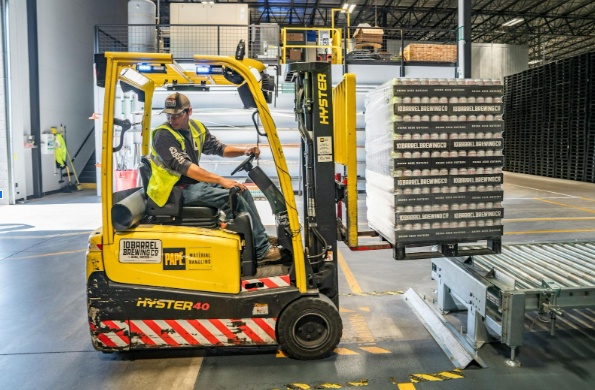Selecting the right California Warehousing services is critical for businesses looking to streamline their logistics operations and ensure efficient storage and distribution of goods. With numerous options available, it's essential to evaluate various factors to find the best fit for your specific needs. This comprehensive guide will outline key considerations to help you make an informed decision when choosing warehousing services in California.
- Location:
- Proximity to transportation hubs: Opt for a warehouse strategically located near major ports, airports, highways, and railroads to facilitate seamless transportation of goods.
- Customer base: Consider the geographical location of your customers to minimize shipping costs and transit times.
- Facility Infrastructure:
- Storage capacity: Assess whether the warehouse has adequate space to accommodate your inventory volume and future growth projections.
- Specialized storage requirements: If you deal with perishable goods, hazardous materials, or oversized items, ensure the facility can accommodate specialized storage needs.
- Technology integration: Look for warehouses equipped with advanced inventory management systems, RFID technology, and automation to enhance efficiency and accuracy.
- Security Measures:
- Surveillance systems: Ensure the warehouse is equipped with CCTV cameras, access control systems, and security patrols to safeguard your inventory against theft and unauthorized access.
- Fire prevention measures: Verify the presence of fire detection systems, sprinklers, and adequate firefighting equipment to mitigate the risk of fire-related incidents.
- Regulatory Compliance:
- Certifications: Choose a warehousing provider that adheres to industry standards and holds relevant certifications such as ISO 9001, ISO 14001, and Good Manufacturing Practice (GMP) certifications.
- Compliance with local regulations: Ensure the warehouse complies with California's environmental regulations, labor laws, and safety standards to avoid potential legal issues.
- Scalability and Flexibility:
- Expansion capabilities: Select a warehousing partner capable of accommodating fluctuations in inventory levels and seasonal demand spikes without compromising service quality.
- Flexible contracts: Look for providers offering customizable contract terms and scalable pricing models to align with your business requirements.
- Track Record and Reputation:
- Industry experience: Prioritize warehousing companies with a proven track record of serving clients in your industry vertical.
- Client testimonials: Research online reviews, testimonials, and case studies to gauge the satisfaction levels of previous clients and assess the provider's reputation.
- Value-Added Services:
- Order fulfillment: Evaluate whether the warehouse offers additional services such as order picking, packing, and shipping to streamline your supply chain operations.
- Value-added services: Consider providers that offer value-added services like kitting, labeling, and quality control inspections to enhance the efficiency of your warehousing operations.
- Environmental Sustainability:
- Green initiatives: Choose a warehousing partner committed to sustainable practices such as energy-efficient lighting, recycling programs, and eco-friendly packaging solutions to minimize environmental impact.
- Cost and Pricing Structure:
- Transparent pricing: Request detailed cost breakdowns and compare pricing structures across multiple providers to ensure transparency and avoid hidden fees.
- Cost-saving opportunities: Look for opportunities to optimize costs through volume discounts, shared warehousing arrangements, and efficient inventory management practices.
Conclusion:
Choosing the best warehousing services in California requires careful consideration of factors such as location, facility infrastructure, security measures, regulatory compliance, scalability, track record, value-added services, environmental sustainability, and cost. By prioritizing these key considerations and conducting thorough due diligence, businesses can select a warehousing partner that aligns with their unique needs and contributes to their overall operational efficiency and success.


No comments yet